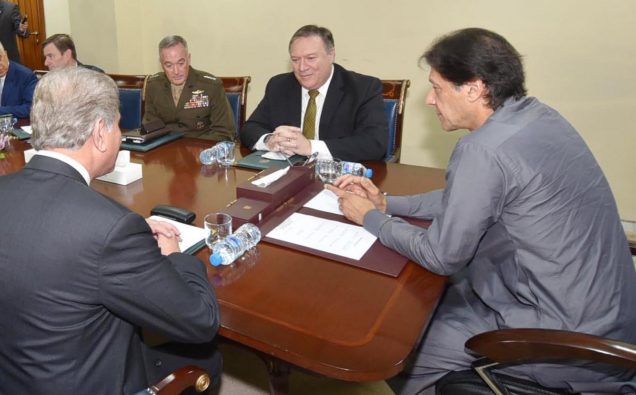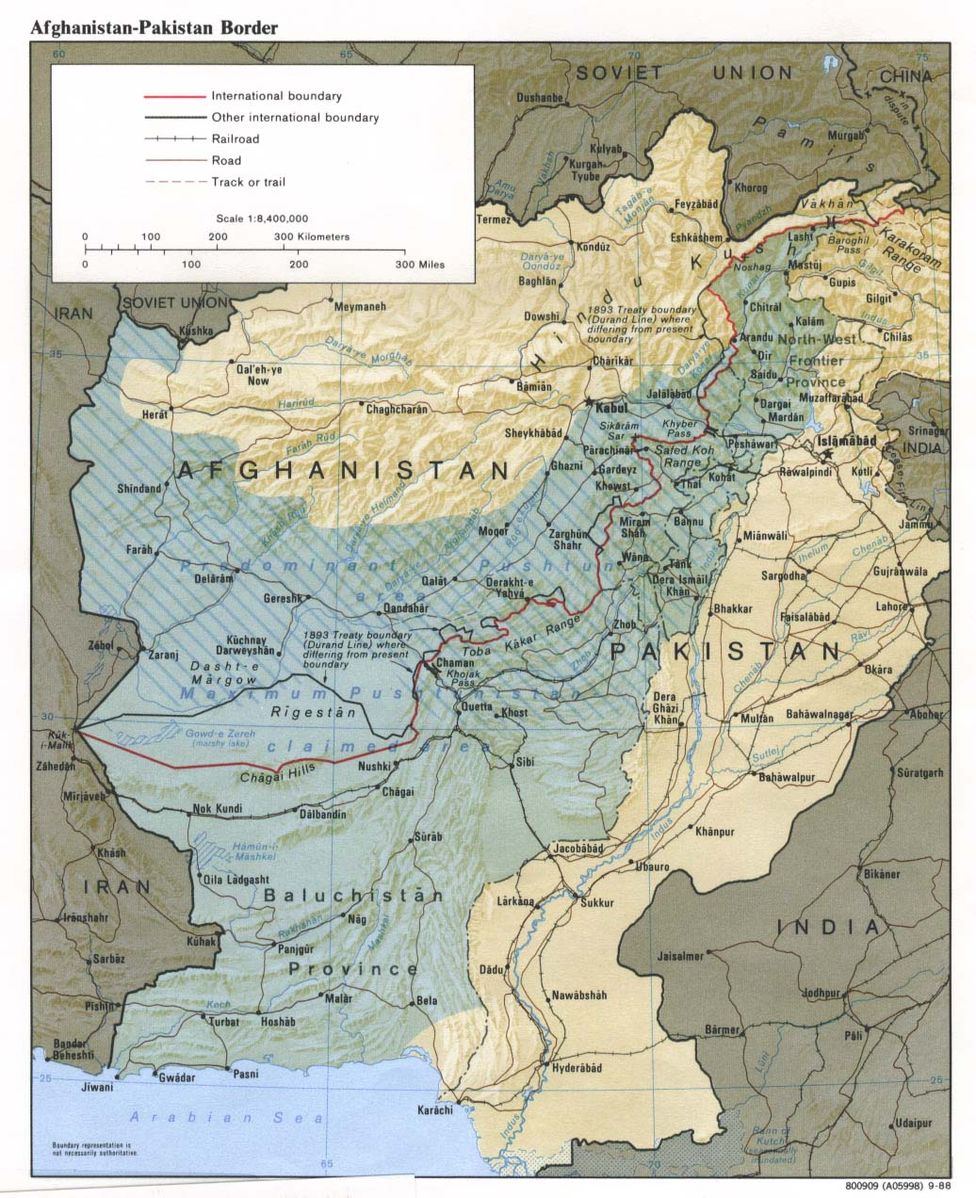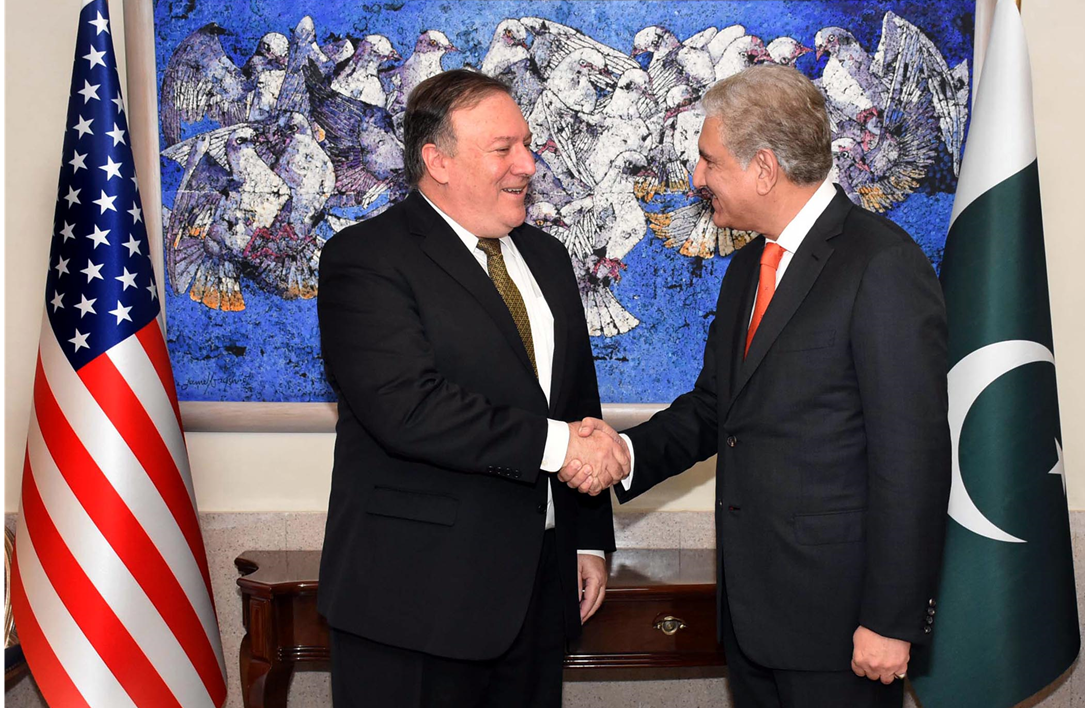
U.S. Secretary of State Mike Pompeo held discussions with Pakistan’s newly elected Prime Minister Imran Khan with a desire to reset relations through progress in areas of common interest including efforts to bring peace in Afghanistan.
The U.S.-Pakistan relations have suffered a spate of setbacks since the beginning of the year, when President Donald Trump accused Pakistan of being complicit with Afghan militants, and later suspended military assistance for the country.
On the eve of Pompeo’s visit, Washington said it has suspended U.S. aid worth $300 million to Pakistan. Islamabad says the amount is not assistance but Coalition Support Fund which the U.S. has been reimbursing to Pakistan in support for fight against terror. The U.S. now has withheld around $ 800 million that were to be given to Pakistan.
Besides Afghan troubles – that have raised criticism against U.S. policies in view of the Afghan Taliban’s hold on a large part of the Afghan territory – growing China-Pakistan relations are also a cause of concern. In July, Pompeo had expressed U.S. opposition to an IMF bailout of Pakistan if the money was to be used to repay Chinese loans.
In Washington, a State Department readout of the meetings said: “In all of his meetings, Secretary Pompeo emphasized the important role Pakistan could play in bringing about a negotiated peace in Afghanistan, and conveyed the need for Pakistan to take sustained and decisive measures against terrorists and militants threatening regional peace and stability.”
But on Tuesday, both Pompeo, accompanied by Chairman of the Joint Chiefs of Staff Gen. Joseph F. Dunford, and Pakistani officials including Prime Minister Khan, also sounded positive on the importance of taking forward the relationship.
“We talked about their new government, the opportunity to reset the relationship between our two countries across a broad spectrum – economic, business, and commercial, the work that we all know that we need to do to try and develop a peaceful resolution in Afghanistan, which benefits certainly Afghanistan but also the United States and Pakistan.
“And I’m hopeful that the foundation that we laid today will set the conditions for continued success as we start to move forward,” Pompeo told journalists after his meetings in Islamabad.
With a clear message that the Pakistani civilian and military leaders were on the same page – as stressed by Foreign Minister Shah Mehmood Qureshi – Imran Khan held a joint meeting with Pompeo and other members of the U.S. delegation. Pakistan’s army chief was part of the Pakistani delegation.
Meanwhile, according to an AP report, Imran Khan also voiced optimism on repairing the U.S.-Pakistan relationship – considered critical to the outcome of the 17-year-old U.S.-led war in Afghanistan.
“You know I’m a born optimist,” said Khan, a former cricket great said. “A sportsman always is an optimist. He steps on the field and he thinks he’s going to win,” he added, according to an AP report.
At the same time, both sides are clear about the challenges facing fulfilment of mutual demands and expectations. Islamabad has long resented being seen by the United States through the lens of Afghan war, while Washington has been critical of Pakistan for not moving strongly against Afghan militants – fighting Kabul – that it alleges draw support from the Pakistani soil.
“Prime Minister Khan added that Pakistan looked forward to strengthening its relationship with the US based on trust,” a Pakistani statement said.
During his press talk, Pompeo also acknowledged work that remains to be done.
“So we’ve still got a long way to go, lots more discussion to be had, but the relationship military to military is one that has remained in a place where some of the other relationships haven’t, frankly. They’ve still continued to have relationships, worked on lots of projects that are important together, and I hope we can use that as one of the foundational elements as well.”
Pompeo did not answer questions directly if Washington was willing to impose sanctions against Pakistan if it did not help the way the U.S. wants it to.
Instead, he noted the importance of moving forward in commitments and was hopeful that the two sides would be able to reset their relationship – which has been particularly troubled since Pakistan refused to accept President Trump’s revamped Afghan policy.
“We made clear to them that – and they agreed – it’s time for us to begin to deliver on our joint commitments, right. So we’ve had lots of times where we’ve talked and made agreements, but we haven’t been able to actually execute those. And so there was broad agreement between myself and Foreign Minister Qureshi, as well as with the prime minister, that we need to begin to do things that will begin to actually, on the ground, deliver outcomes so that we can begin to build confidence and trust between the two countries. That was the focus of the gathering.”

















Thank you for the great and informative article!http://tonyclifton.net/